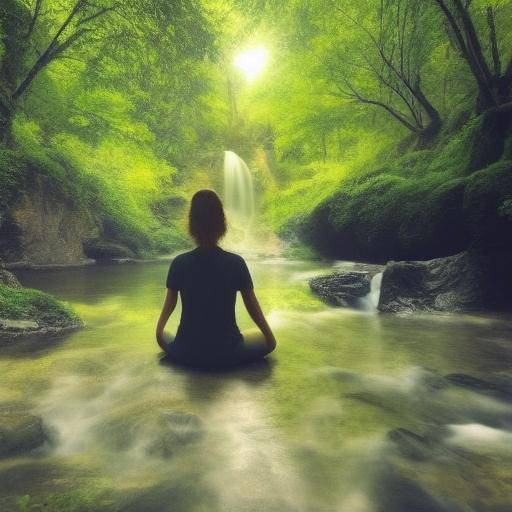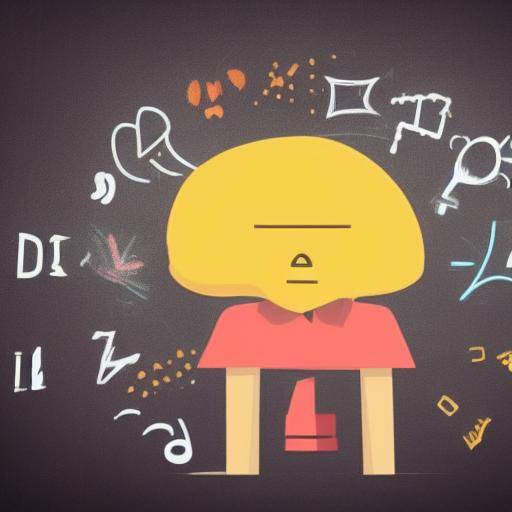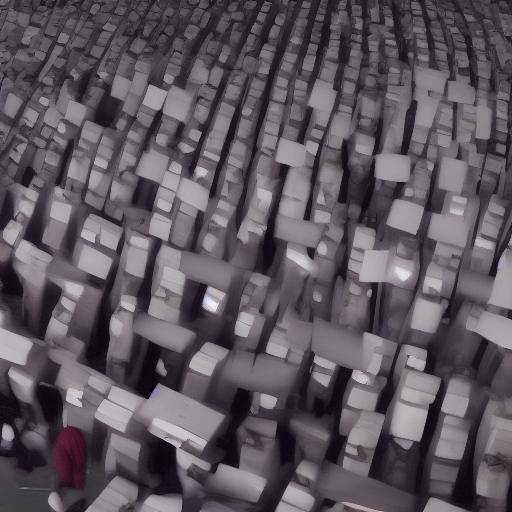
In the midst of the agitated technological era in which we live, the search for personal well-being has become a priority for many. With the rise of eco-therapy, a technique that advocates contact with nature to promote mental and emotional health, people find a shelter in what the mother nature offers. In this article, we will explore in detail what eco-therapy is, how it relates to personal well-being, and how nature can become a powerful ally in our quest for balance and healing.
History and Background
Eco-therapy, also known as ecological therapy or nature therapy, has its roots in the ancestral practices of different cultures around the world. Since ancient times, societies have recognized the benefits of contact with nature in terms of physical, mental and spiritual health. However, it was at the end of the 20th century when this idea began to form part of more structured therapeutic approaches.
Historical evidence suggests that civilizations such as Egyptian, Greek and Roman, among others, used natural environments for healing purposes. Nature was considered a sacred space and was believed to possess healing properties to relieve tensions and discomforts of the body and mind.
With the advancement of technology and urbanization, modern society became increasingly far from nature, resulting in a significant increase in mental health problems. This situation provoked renewed interest in the therapeutic potential of nature, which led to the emergence of eco-therapy as a formal discipline in mental health therapy at the end of the twentieth century.
Exploration in Deep
Eco-therapy offers a wide range of benefits for personal well-being. Scientific studies have shown that spending time in natural environments can reduce stress, decrease anxiety, promote mental clarity and improve mood. Exposure to green spaces can also increase creativity, strengthen the immune system and promote social connection.
In addition, eco-therapy has been successfully employed in the treatment of anxiety disorders, depression, nature deficit disorder, and post-traumatic stress, among others. The practice of ecological therapy covers various forms, such as forest walks, therapeutic gardening, art therapy in nature, and outdoor camps, among others.
Despite its benefits, eco-therapy also faces challenges, such as limited access to natural spaces in urban environments and the need for a stronger scientific base. As discipline continues to evolve, it is essential to address these challenges so that more people can benefit from their therapeutic effects.
Comparative analysis
By exploring the intersection between eco-therapy and personal well-being, you can appreciate the close relationship between both concepts. Nature provides an ideal setting for ecological activities that help us to reconnect with ourselves, with others, and with the surrounding environment. This contact with nature translates into a feeling of well-being that positively impacts our mental and emotional health.
Personal well-being, in its essence, seeks to balance different aspects of life, including physical, mental, emotional and spiritual health. By immersed in the practice of eco-therapy, people can experience a significant improvement in each of these aspects, which gives it a fundamental role in the search for integral well-being.
On the other hand, nature, as an inexhaustible source of benefits, is positioned as the perfect catalyst to achieve a balanced welfare state. The combination of eco-therapy and the connection with nature allows us to address key aspects# How to use eco-therapy technique for personal well-being
In the midst of the agitated technological era in which we live, the search for personal well-being has become a priority for many. With the rise of eco-therapy, a technique that advocates contact with nature to promote mental and emotional health, people find a shelter in what the mother nature offers. In this article, we will explore in detail what eco-therapy is, how it relates to personal well-being, and how nature can become a powerful ally in our quest for balance and healing.
History and Background
Eco-therapy, also known as ecological therapy or nature therapy, has its roots in the ancestral practices of different cultures around the world. Since ancient times, societies have recognized the benefits of contact with nature in terms of physical, mental and spiritual health. However, it was at the end of the 20th century when this idea began to form part of more structured therapeutic approaches.
Historical evidence suggests that civilizations such as Egyptian, Greek and Roman, among others, used natural environments for healing purposes. Nature was considered a sacred space and was believed to possess healing properties to relieve tensions and discomforts of the body and mind.
With the advancement of technology and urbanization, modern society became increasingly far from nature, resulting in a significant increase in mental health problems. This situation provoked renewed interest in the therapeutic potential of nature, which led to the emergence of eco-therapy as a formal discipline in mental health therapy at the end of the twentieth century.
Exploration in Deep
Eco-therapy offers a wide range of benefits for personal well-being. Scientific studies have shown that spending time in natural environments can reduce stress, decrease anxiety, promote mental clarity and improve mood. Exposure to green spaces can also increase creativity, strengthen the immune system and promote social connection.
In addition, eco-therapy has been successfully employed in the treatment of anxiety disorders, depression, nature deficit disorder, and post-traumatic stress, among others. The practice of ecological therapy covers various forms, such as forest walks, therapeutic gardening, art therapy in nature, and outdoor camps, among others.
Despite its benefits, eco-therapy also faces challenges, such as limited access to natural spaces in urban environments and the need for a stronger scientific base. As discipline continues to evolve, it is essential to address these challenges so that more people can benefit from their therapeutic effects.
Comparative analysis
By exploring the intersection between eco-therapy and personal well-being, you can appreciate the close relationship between both concepts. Nature provides an ideal setting for ecological activities that help us to reconnect with ourselves, with others, and with the surrounding environment. This contact with nature translates into a feeling of well-being that positively impacts our mental and emotional health.
Personal well-being, in its essence, seeks to balance different aspects of life, including physical, mental, emotional and spiritual health. By immersed in the practice of eco-therapy, people can experience a significant improvement in each of these aspects, which gives it a fundamental role in the search for integral well-being.
On the other hand, nature, as an inexhaustible source of benefits, is positioned as the perfect catalyst to achieve a balanced welfare state. The combination of eco-therapy and the connection with nature allows us to address key aspects of our existence, which leads us to experience a sense of fullness and harmony.
Practical Tips and Accessible Advice
If you want to incorporate the eco-therapy technique into your personal welfare search, here are some practical tips and actions you can take:
- Outdoor time: Dedicates time regularly to be in contact with nature. Walking through the forest, enjoying a picnic, or spending time in a garden are good options.
- Meditation in nature: Find a quiet place outdoors and practice meditation. The combination of natural peace and introspection can be profoundly healing.
- Therapeutic Gardening: If you have the opportunity, spend time caring for a garden. The act of planting, watering and observing plant growth can have significant therapeutic effects.
- Digital disconnection: Take advantage of time in nature to disconnect from electronic devices. Direct connection with the natural environment is reinforced by avoiding digital distractions.
- Conscious practice: As you participate in outdoor activities, keep a full awareness of the present moment. Watch the small details and taste the sensory experience.
Future ideas and predictions
The future of eco-therapy and its impact on personal well-being promises to be exciting and meaningful. With a renewed focus on mental health and ecological awareness, we are likely to see an increase in the adoption of this technique as a complement to traditional therapies. In addition, the integration of eco-therapy into educational and work environments can become a norm, providing long-term benefits to society as a whole.
Scientific evidence is expected to continue to support the benefits of eco-therapy, which will contribute to its widespread acceptance and inclusion in welfare programmes. With the focus on environmental sustainability and care, connecting with nature through eco-therapy can also play a crucial role in promoting environmental awareness and responsible action.
Conclusion
Personal well-being is a continuous journey that requires conscious attention to all dimensions of our life. The eco-therapy technique offers a holistic and effective approach to improving mental and emotional health by taking advantage of the resources that nature provides abundantly. As we enter into their benefits and practices, we create the opportunity to find balance, healing and renewal on our day-to-day.
In an increasingly digitally connected world, the value of reconnecting with nature, both for our personal well-being and for the well-being of the planet, cannot be underestimated. The eco-therapy technique invites us to rediscover a deeper relationship with our environment, which translates into greater internal and external harmony.
Frequently asked questions
1. What specific benefits does eco-therapy offer compared to other forms of therapy?
Eco-therapy offers unique benefits by focusing on connecting with nature as an essential component. This includes stress reduction, promotion of physical health, greater mental clarity and a sense of connection with something greater than oneself.
2. Is it necessary to live near natural areas to take advantage of eco-therapy?
While access to natural environments is beneficial, eco-therapy can be adapted to various urban environments. Even small green spaces, local parks or community gardens can serve as places to practice eco-therapy.
3. Is eco-therapy suitable for everyone?
Eco-therapy can adapt to individual needs, but it is important to consult with a mental health professional if specific concerns are taken. In general, the connection with nature can be beneficial for most people.
4. Are there risks associated with the practice of eco-therapy?
In general, eco-therapy is considered safe and beneficial for most people. However, as with any form of therapy, it is important to practice it consciously and adapted to individual needs. Make sure you follow safe guidelines by participating in outdoor activities and consult a professional if you have specific concerns.
5. Can eco-therapy be practiced individually or is the guidance of a therapist necessary?
Eco-therapy can be practiced individually, especially by engaging in outdoor activities or gardening. However, the guidance of an eco-therapy therapist can offer greater benefits, especially in addressing specific mental health challenges.
6. What are some examples of eco-therapeutic practices to incorporate into everyday life?
Practices such as walking through nature, gardening, outdoor meditation, silent contemplation, and art in nature are concrete examples of eco-therapeutic activities that can be included in the daily routine to promote personal well-being.
Concluding, eco-therapy represents a powerful and holistic approach to personal well-being by integrating the healing influence of nature. By exploring this technique with awareness and commitment, we open the door to a transformative path to mental health, emotional harmony and the connection with the natural world around us.







